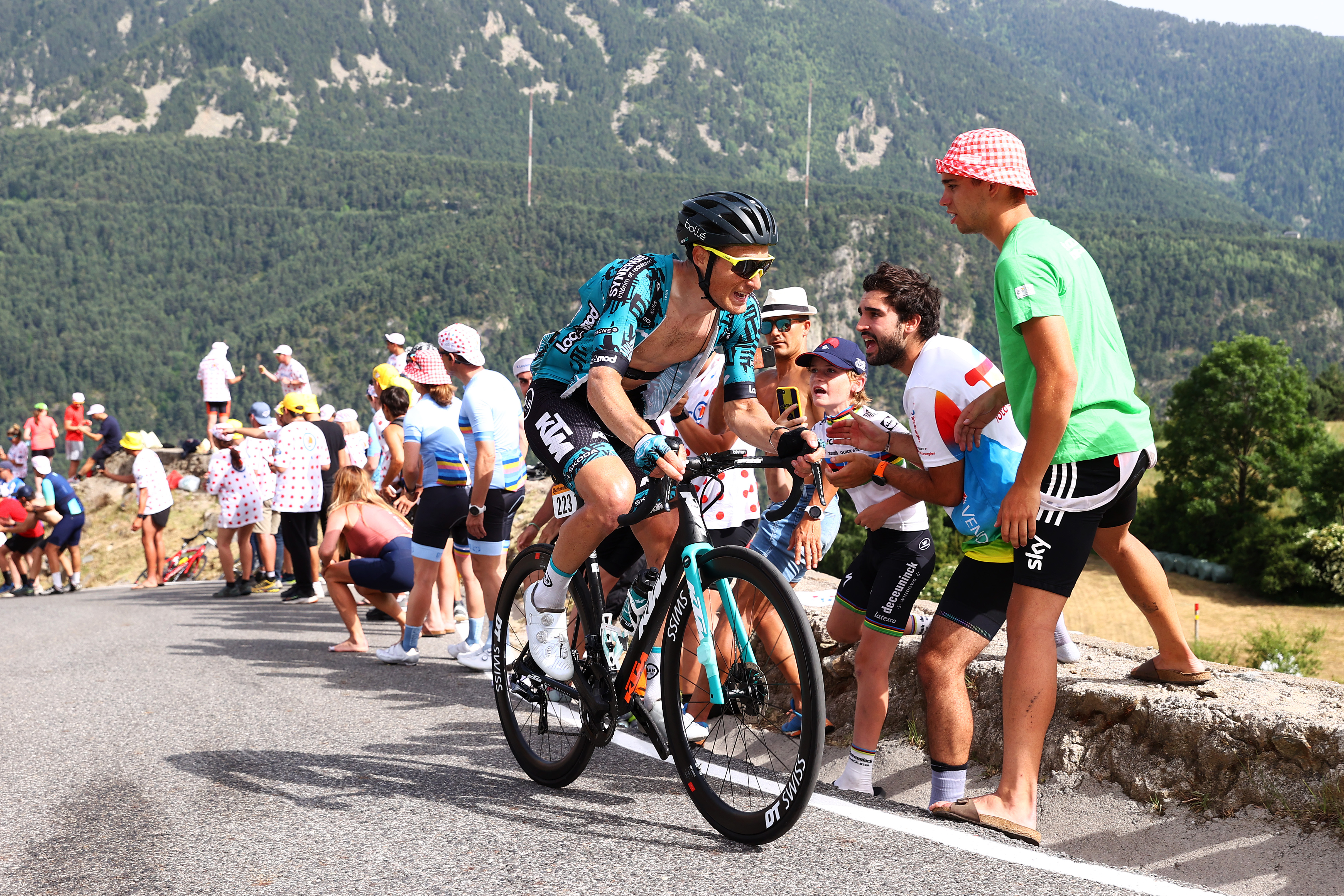Former French pro cyclist banned for four years over 'unexplained abnormality' in biological passport
Franck Bonnamour, now retired, found to have committed an anti-doping rule violation


A former French pro cyclist has been handed a four year ban by cycling's governing body, the UCI, after an "unexplained abnormality" in his biological passport.
Franck Bonnamour, 30, has been retired since last year, after he was dismissed by his then team, Decathlon-AG2R La Mondiale, due to being suspended for anti-doping reasons. He had been suspended from February 2024.
Now, the UCI's Anti-Doping Tribunal has come to a decision on Bonnamour, giving him a four year ban which is backdated to 5 February 2024, so will end on 4 February 2028.
The statement reads: "The Tribunal found that Franck Bonnamour had committed an Anti-Doping Rule Violation (ADRV) for use of a prohibited substance or a prohibited method due to an unexplained abnormality in his Athlete Biological Passport in 2022. As a consequence, the Tribunal has imposed a four-year period of ineligibility on the rider."
All WorldTour and ProTour riders have a biological passport, an electronic record of all of their doping tests. The measure was introduced in 2008 and is run by an independent entity, the International Testing Agency (ITA), who complete blood and urine tests in and out of competition.
In 2022, Bonnamour rode for B&B Hotels-KTM, taking part in the Tour de France that year.
A popular breakaway figure at the Tour, earning the Super Combatif title in 2021, Bonnamour won one race in his decade-long career, the minor French event La Polynormande, while riding for B&B in 2022. He was previously part of Arkéa Samsic's squad, having turned pro with the team as a trainee in 2015.
The latest race content, interviews, features, reviews and expert buying guides, direct to your inbox!
Last year, he insisted that he had never used "blood manipulation" or doping products.
"I have always done my job respecting the rules that the UCI imposes on me," he wrote on social media.
"I have always complied, of course, with the numerous anti-doping controls that this sport has required of me for years. I have never used prohibited products or any blood manipulation.
"With the help of my lawyers and scientists, we’re working on my defence. I have always been an honest, upright and clean rider and therefore cannot be accused of cheating."
However, later in 2024 he told Ouest-France:"It's too costly in financial terms, so I'm stopping. We had to start proceedings before the UCI tribunal before going to the Court of Arbitration for Sport.
"If we had been successful, the UCI would have appealed, which would have pushed back the deadline by a year and a half, increasing the costs. I can't afford to lose everything, and that's holding me back financially."

Adam is Cycling Weekly’s news editor – his greatest love is road racing but as long as he is cycling, he's happy. Before joining CW in 2021 he spent two years writing for Procycling. He's usually out and about on the roads of Bristol and its surrounds.
Before cycling took over his professional life, he covered ecclesiastical matters at the world’s largest Anglican newspaper and politics at Business Insider. Don't ask how that is related to riding bikes.
You must confirm your public display name before commenting
Please logout and then login again, you will then be prompted to enter your display name.